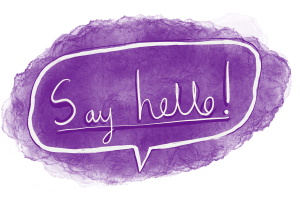Your head is full of ideas, but you don’t have the time, words (or inclination?!) to commit pen to paper. You need the services of an executive ghostwriting B2B copywriter to distil your expertise into compelling content. Read this article to learn:
🧁What is a ghost copywriter?
🧁What is a freelance ghostwriter?
🧁Why would someone use a ghostwriter?
🧁What exactly does a ghostwriter do?
🧁What is the difference between ghostwriting and copywriting?
🧁Ghostwriting examples
🧁Professional ghostwriting services
Let’s begin…
What is a ghost copywriter?
A ghost copywriter isn’t as weird or scary as it might sound. In essence, a ghost copywriter is someone who will articulate a person’s ideas/opinions on their behalf. Typically, a professional ghostwriter will create books on behalf of an individual. But ghost copywriting is different. Ghost copywriting tends to focus more on promotional writing – for example blogs, articles, editorial.
One important thing to understand about ghost copywriting is that a ghost copywriter does not generate the narrative for the content. A ghost copywriter only takes the ideas, opinions and experiences from an individual, and put them into words their audience will find useful/interesting.
GHOSTWRITER DESCRIPTION: a ghostwriter is hired to write literary or journalistic works, speeches, or other texts that are officially credited to another person as the author.
What is a freelance ghostwriter?
A freelance ghostwriter is self-employed and writes on behalf of several individuals/organisations. Their skills, knowledge and experience will be on a par with those who work for a ghostwriting agency.
Granted, I’m biased, but I believe the benefits in working with a freelance ghostwriter are:
🧁You get to choose your writer rather than have one assigned to your account, which means you can work with someone you really connect with.
🧁You won’t get tied in red tape, because your writer is also your account manager (…and CEO, and COO, and CFO!).
🧁They own the process, so if you want to go rogue and have a second briefing session after the first round of amends, that’s possible.
Why would someone use a ghostwriter?
In my experience, there are 3x main problems that lead an organisation to use a ghostwriter:
Too busy
When I’m ghostwriting it’s for members of the senior leadership team or subject matter experts within the business. These individuals are crucial to the organisation’s success, and their time is better spent delivering value to their clients. Even with the best will in the world, drafting an article will never be a priority for these people, because the moment a client calls or a colleague requests a meeting, the article is bumped down the ‘to-do’ list.
Can’t find the words to express your ideas
A ghost copywriter (unsurprisingly!) specialises in ghostwriting. It is all they do. All their training, research, practice – everything – is invested in becoming the best they can be at their craft. The same is true of the people in your business who focus their professional development to hone their skills. If a senior leader or subject matter expert struggles to put their ideas down in a coherent and compelling piece of copy, that’s ‘normal’ because it’s not what they’re trained to do.
Brand consistency
To build a strong brand you need to show up in the same way every time, because it enables customers to know what they can expect from you. A ghost copywriter adds value through the alignment of the individual’s tone of voice and thoughts with the company’s overall mission and values. In addition, they bring consistency in the way the individual and the organisation talk about products/services/customers/markets/trends, which ultimately strengthens your brand.
What exactly does a ghostwriter do?
The following is the process I use to create ghost written articles:
🧁Get the topic (or at least a rough idea of what the individual wants to talk about) and perform a 30(ish) min interview.
THE MOST IMPORTANT THING…during the interview I will note down specific words, phrases, anecdotes the individual uses to ensure the article incorporates their tone of voice.
🧁Structure my notes to find the key discussion threads and figure out what the overall theme for the article could be.
🧁Perform extensive research to back up any ideas/opinions/claims. Additionally, research keywords if this hasn’t been supplied by the client.
🧁Create a skeleton for the article to highlight the key messages and then record an accompanying video to talk the client through the narrative.
🧁Once the skeleton is approved, write up version 1, with references/links to the supporting research/analyst commentary, and send for review.
🧁Incorporate any feedback/amends.
What is the difference between ghostwriting and copywriting?
| Ghostwriting | Copywriting |
| Attributed to an individual, such as a senior leader or subject matter expert. Produced as thought leadership content to share skills/knowledge/experience. Most used when writing blogs, articles, editorial, white papers. | Typically attributed to an organisation, although it can be for a team/individual. Can be tactical (e.g. SEO), educational, or based in thought leadership. A huge umbrella term that captures everything from a slogan to a book. |
Ghostwriting examples
Professional ghostwriting services
Whether you’re too busy or simply can’t find the words to express your ideas, I promise to deliver more than words®:
Find the details that matter
Sometimes it’s hard to communicate clearly on a topic you’re close to. It takes an outsider (with B2B marketing savvy!) to structure your expertise into a cohesive, compelling message.
Add substance to ideas
Are you bursting with ideas and opinions on your chosen topic? Great, I love that! I’ll add weight to your copy by wrapping it in deep research and commentary.
Make it personal
It’s not always easy to write about yourself. A good ghostwriter will mimic your voice, while infusing your copy with genuine personality. It’s a piece of cake!



